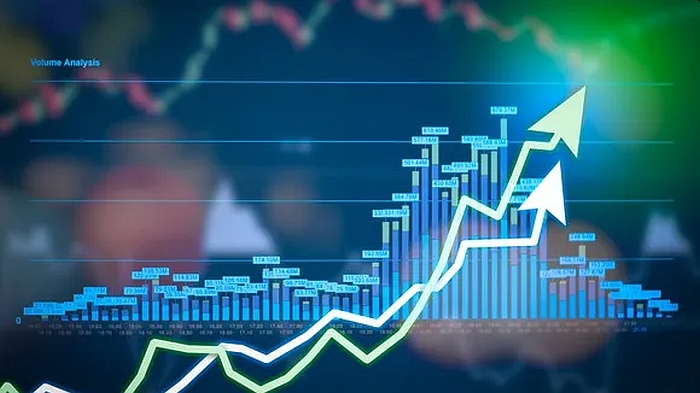The S&P 500 rose on Friday to hit a new high for the year after the November jobs report and University of Michigan consumer survey data signaled a resilient economy and cooling inflation, fueling hopes for a so-called soft landing scenario.
The S&P 500 added 0.41% to settle at 4,604.37, while the Nasdaq Composite
rose 0.45% to finish at 14,403.97. The Dow Jones Industrial Average
gained 130.49 points, or 0.36%, to end at 36,247.87.
The S&P 500 posted its highest close of the year last week, but had yet to exceed its 2023 intraday high set in July until Friday, when it topped 4,609 in afternoon trading. The benchmark is now up about 20% on the year and trading at its highest level back to March 2022.
Alaska Air reached a deal to buy Hawaiian Airlines
Alaska Air (ALK:NYSE) reached a deal to pay roughly $1 billion in cash to buy rival Hawaiian Airlines
The merger would unite carriers that largely serve destinations in the Pacific region and operate competing flights to Hawaii. The airlines will retain their separate brands.
The deal will be scrutinised by antitrust authorities, which have also targeted JetBlue Airways’ (JBLU:NASDAQ) merger with Spirit Airlines (SAVE:NYSE) and JetBlue’s partnership with American Airlines (AAL:NASDAQ).
Hawaiian Holding (HA:NASDAQ) shares surged 173% for the week, while Alaska shares dropped 10%
Spotify ends the year with another round of layoffs
Spotify Technologies (SPOT:NYSE) announced its plans to cut 17% of its workforce—about 1,500 jobs—as it continues its push towards profitability.
After growing in size and scope earlier in the pandemic, the audio streaming company is now focusing on cutting costs. The company said it would lay off about 600 employees, or 6% of staff in January. In June it announced plans to trim an additional 200 jobs, or 2% of its workforce.
Spotify has scaled back its $1 billion bet on podcasting, and over the summer, it raised its subscription price in the U.S. and other major markets.
Spotify shares rose 9.6% for the week.
CVS shakes up drug-pricing status quo
CVS Health (CVS:NYSE) announced a new payment model the company said is simpler and more transparent.
The new payment model called CostVantage which will be rolled out next year, allows CVS pharmacies to be reimbursed based on the amount that CVS paid for the drugs, in addition to a limited markup and a flat fee for its handling and dispensing services.
This is similar to the “cost plus” model promoted by entrepreneur Mark Cuban’s eponymous pharmacy company, among others.
Pharmacies are generally paid using complex formulas that aren’t directly based on what they spent to purchase specific prescription drugs.
CVS shares rose 9.6% for the week.
Google unveils new AI powerhouse
Google (GOOG:NASDAQ) announced Gemini, its new artificial-intelligence system that the company said is more powerful than any others currently on the market.
Google’s announcement coincides with recent turmoil at OpenAI, the creator of ChatGPT, and advances Alphabet in the race among tech giants to gain dominance in the booming field of AI.
The search giant said its algorithm wouldn’t be widely available until early next year, citing a need for more extensive safety testing.
Alphabet shares gained 2% in the past week.
GameStop continues turnaround efforts
GameStop (GME:NYSE) has announced a new investment policy, which will allow it to use cash to invest in stocks. Chairman and CEO Ryan Cohen will have the authority to manage the investment portfolio.
The videogame retailer didn’t give any further comment on its new policy even as analysts from Wedbush analysts called the move “alarming” and “inane.”
GameStop has struggled for years as many customers have shifted to downloading games over the internet. The one-time meme stock is worth a fraction of its peak valuation from January 2021.
GameStop shares rose 1.6% for the week.

